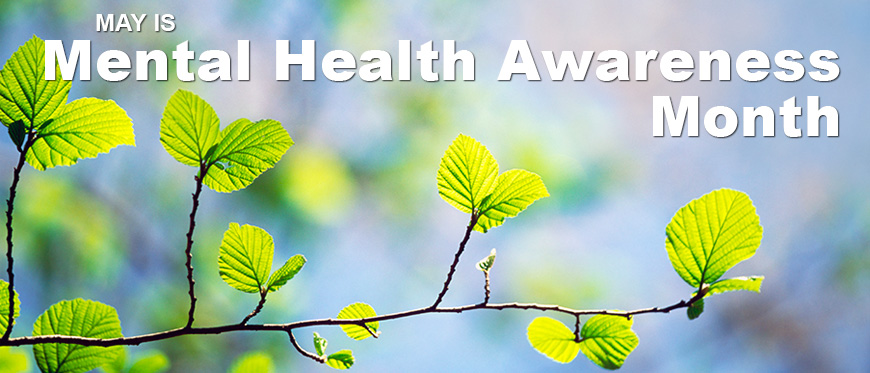From the World Health Organization (WHO) to the National Alliance on Mental Illness (NAMI) to the National Institute of Mental Health (NIMH) to the Huffington Post, the slogan “No health without mental health” encourages us to explore what parity really means as we move towards a more holistic approach to wellness. By definition, “mental health parity” simply means that insurance must reimburse equally for the treatment of mental health and substance abuse disorders as it would for any other medical condition.
In 2008, Congress passed the Paul Wellstone and Pete Domenici Mental Health Parity and Addiction Equity Act (MHPAEA) to ensure equal coverage. Prior to this law, mental health and substance abuse were covered at lower levels of insurance coverage than medical illness and thus by inference were considered less important medical diagnoses.
Progress Towards a More Comprehensive Approach
We are slowly moving towards a more comprehensive approach to health, and parity goes a long way in legitimizing care for the total person and most importantly, reducing stigma.
We know now that:
- Illnesses such as depression and anxiety are common and can be managed by lifestyle changes and medications much in the same way we impact hypertension and metabolic and inflammatory illness.
- Much of our nationwide addiction crisis has been a result of our inability as a nation to understand how to manage pain.
- The suicide rate in the United States rose 24% from 1999 to 2014, and grew twice as fast in the second half of that period than it did in the first half.
- One in four adults−approximately 61.5 million Americans−experiences mental illness and substance abuse in a given year, and less than 40% of those access treatment for a variety of reasons, including lack of insurance, lack of access, or fear of stigma. Our current stats are not that much different from the original studies done in the late seventies by Roger Kessler as we still struggle to implement the integrative concepts of “biopsychosocial” care as put forth by George Engel four decades ago.
“Up to 75 percent don’t seek help for their mental health, many due to fear of being stigmatized. It’s helpful to reframe this dangerous bias.” ~ Sherry Amatenstein LCSW, author and relationship expert
Each state must also legislate its parity laws and Vermont has led the way in exceeding nationwide standards. Unfortunately that does not always ensure access to mental health care but we hope that it can reduce the stigma that might stand in the way of one seeking help.
“Parity for mental health care only becomes real when all of health care is integrated: mind, body and spirit, with equal access for all.” ~ Vermont Representative Anne Donahue
Access to Mental Health Services in Central Vermont
Within our University of Vermont Health Network and throughout central Vermont, there are many services available for treating mental health:
- Counseling through many of the UVM Health Network primary care offices and through the federally funded SBIRT (Screening, Brief Intervention, Referral, and Treatment) grant.
- UVMHN-CVMC Family Psychiatry offers outpatient psychiatric evaluation, treatment and therapy with a staff comprised of therapists, psychiatric nurse practitioners, and three psychiatrists who also specialize in the treatment of children and adolescents.
- Central Vermont Substance Abuse Services and the BAART clinic treat addiction with a combination of Medically Assisted Treatment (Suboxone and methadone) and behavioral interventions.
- At UVM Health Network CVMC, our 14 bed inpatient unit offers an array of services to assist patients and family members through crisis: psychiatric, medical and substance abuse evaluation and treatment, social work, case management and expressive therapy.
- We often refer for comprehensive services, case management, and group therapy to Washington County Mental Health Services (WCMHS), Youth Services Bureau, and the wealth of private therapists and peer-run supports in our community and to the specialists within our own system.
There are often waiting lists and anyone experiencing a mental health crisis should always access immediate care through the emergency room or by calling 911.
The Message?
As we as a society strive for better health for all, keep in mind the quote attributed to John Kennedy, “A rising tide lifts all boats.” We are all in this together.
Resources:
- “No health without mental health” was first coined in 1999 by then Surgeon General David Satcher.
- The NAMI website explains parity in detail: https://www.nami.org/Find-Support/Living-with-a-Mental-Health-Condition/Understanding-Health-Insurance/What-is-Mental-Health-Parity
- http://www.cdc.gov/nchs/products/databriefs/db241.htm
- http://www.ncbi.nlm.nih.gov/pmc/articles/PMC1466742/
- Fact sheet: http://www2.nami.org/factsheets/mentalillness_factsheet.pdf





